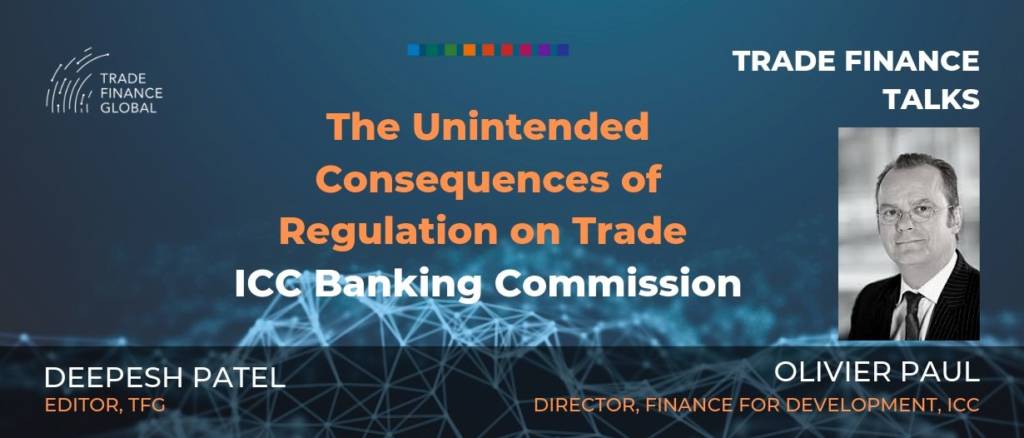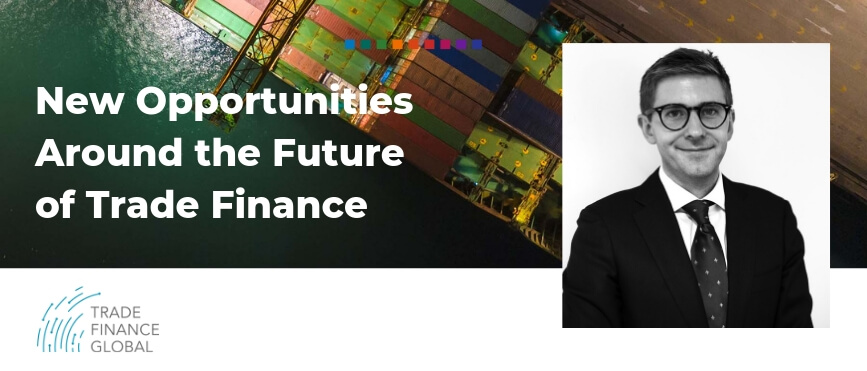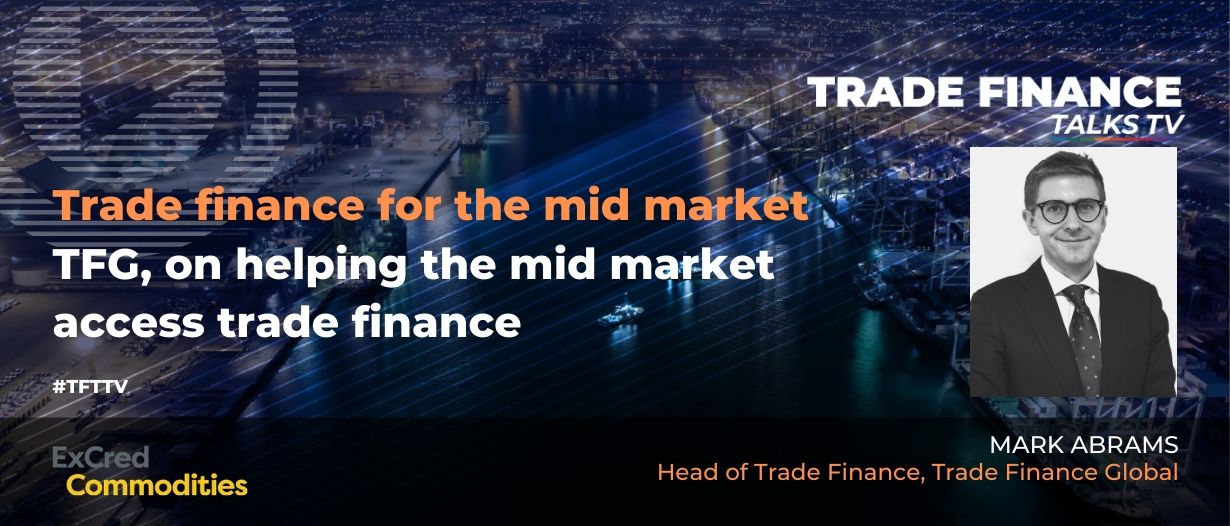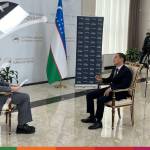We caught with Trade Finance Global’s Head of Trade Finance, Mark Abrams, discussing the latest on mid market access to trade and receivables finance, in light of trade wars and geopolitical uncertainty, particularly Brexit. The interview was held at ExCred Commodities in London.
Featuring: Mark Abrams, Head of Trade, Trade Finance Global
Host: Deepesh Patel, Editor, Trade Finance Global
Closing the Gap: Mid market access to trade and receivables finance
Are there unintended consequences of bank regulation for SMEs and the mid-market?
Yes. In Europe we’ve seen a big push towards trying to bring liquidity or finance into the trade system. That’s what Trade Finance Global aims to do.
But actually, if you look at Basel III and IV regulation, we’re seeing more and more unintended consequences of SME trade finance provision from the banks in the last few years. From banks, because of capital advocacy rules and how banks are treated, we’re seeing more pressure in terms of insurance wording, and this actually filters through to the insurers and the underwriters we’re working with. So there’s often less desire to work with new underwriters which are coming to the market, and very much their ratings, which are under heavy scrutiny.

We’re seeing more banks cutting correspondent banking relationships. So for a trader on the ground who wants to issue a deferred LC or a usance on LC, it’s becoming more and more difficult because mid market banks have less capacity and struggle to service these traders.
Lastly, we’re seeing a lot of the focus on the larger traders, who are backed by well-known banks. But with the current regulatory environment, they are less willing to come into the mid market looking for that extra liquidity and new finance lines.
Are companies aware of pre-export / pre-shipment finance to grow their cross-border trades?
In short, no. Most companies lack access to education and information. What Trade Finance Global aims to do is provide a huge amount of information from partnering with organisations like the ICC in terms of rules promotion and education, as well as looking at different sectors and providing expertise on what’s going on with trade.
Alternative financiers are ofen going for the lowest hanging fruit, that is, financing invoices. But it’s just important to show that there are financing structures pre invoice, and no trade should be left unfunded.

Is geopolitical or macroeconomic uncertainty affecting businesses? How?
So absolutely. We’ve seen considerable political instability, which for small and mid-market traders is prohibitive when it comes to access to trade finance, particularly in specific jurisdictions.
The impact of trade wars and trade tariffs have been huge on small businesses, who have had to continuously adapt and change their supply chains, whether it be tacking issues around warehousing, capacity or customs.





























